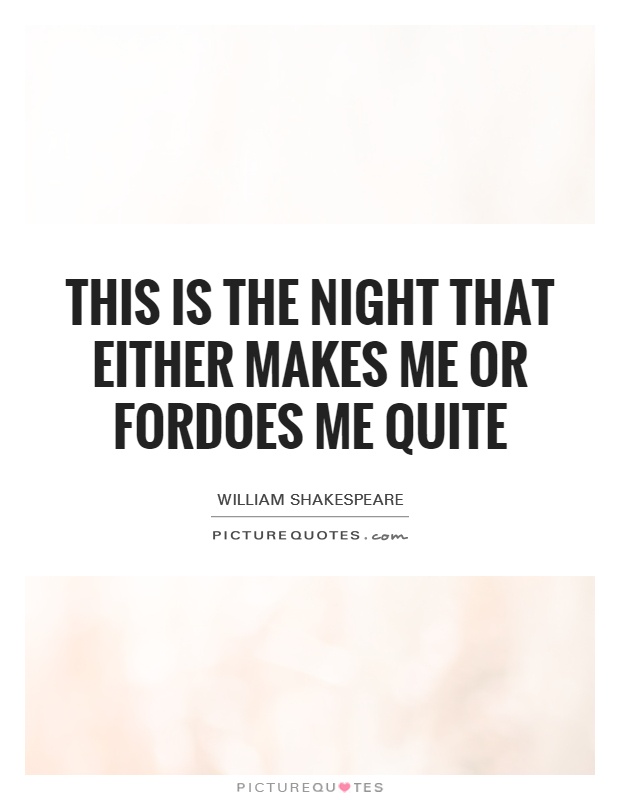This is the night That either makes me or fordoes me quite

This is the night That either makes me or fordoes me quite
"This is the night That either makes me or fordoes me quite" is a powerful line from William Shakespeare's play, Macbeth. In this line, Macbeth is expressing his inner turmoil and uncertainty about the events that are about to unfold. The night in question is the night that Macbeth plans to murder King Duncan in order to fulfill the witches' prophecy and become king himself.The use of the word "fordoes" in this line is significant as it means to destroy or ruin completely. Macbeth is acknowledging that the actions he is about to take could have severe consequences and could ultimately lead to his downfall. He is aware that this night could be the turning point in his life, where he either achieves his ambition or destroys himself completely.
The line also reflects the theme of fate and free will in the play. Macbeth is torn between his desire for power and his sense of morality. He knows that he has the free will to choose his actions, but he also believes in the witches' prophecy that he will become king. This internal conflict is what drives the tragic events of the play and ultimately leads to Macbeth's downfall.
Shakespeare's use of language in this line is also worth noting. The repetition of the word "quite" at the end of the line adds emphasis to Macbeth's uncertainty and fear. It conveys the sense that Macbeth is on the brink of something momentous and that his fate hangs in the balance.
Overall, "This is the night That either makes me or fordoes me quite" is a powerful and evocative line that captures the essence of Macbeth's inner turmoil and the central themes of fate and free will in the play. It is a reminder of the consequences of our actions and the choices we make, and serves as a warning of the destructive power of ambition and unchecked desire.












 Friendship Quotes
Friendship Quotes Love Quotes
Love Quotes Life Quotes
Life Quotes Funny Quotes
Funny Quotes Motivational Quotes
Motivational Quotes Inspirational Quotes
Inspirational Quotes